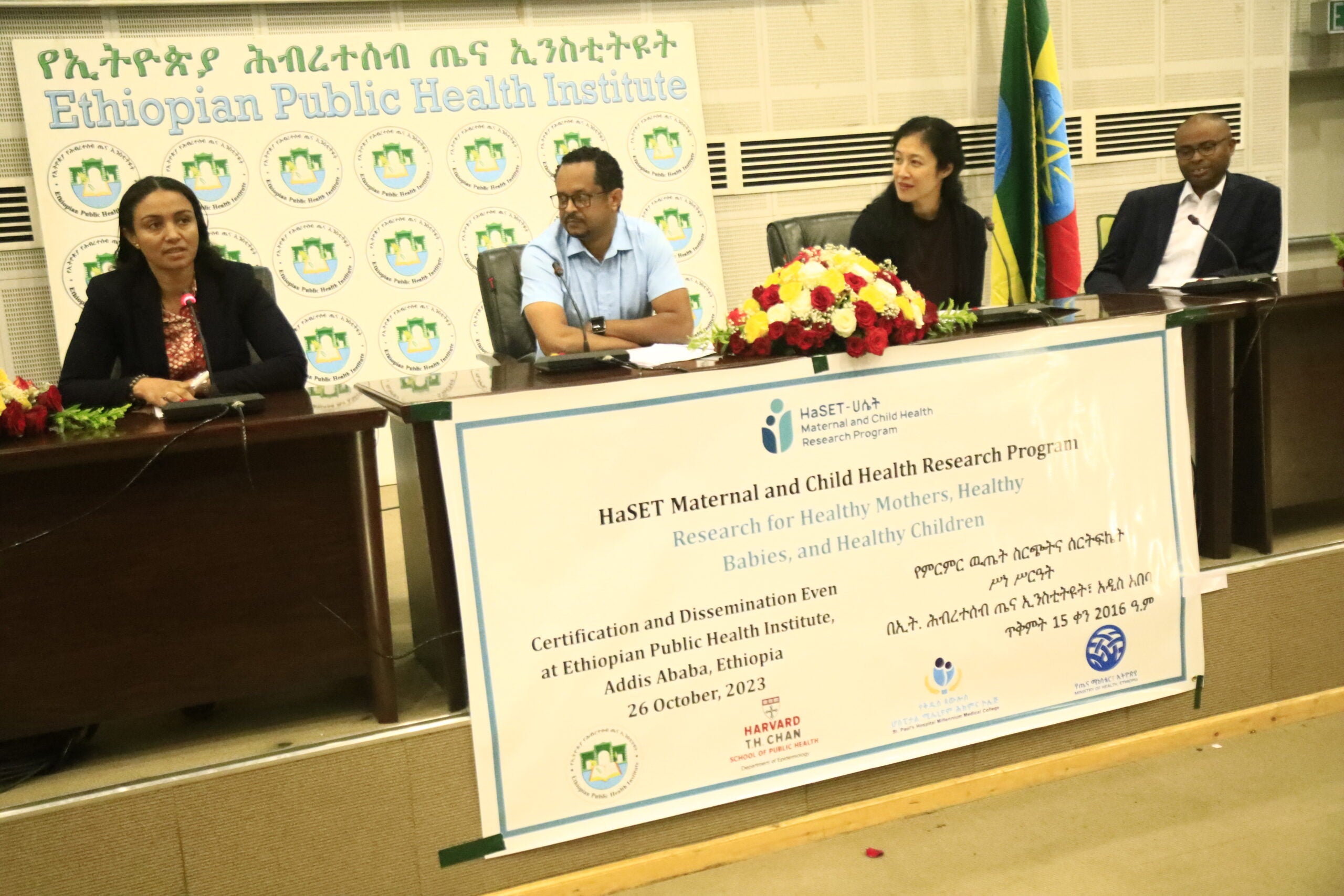Maternal and child health research program in Ethiopia makes strides
The HaSET Maternal and Child Health Research Program recently celebrated a series of milestones towards improving health in Ethiopia and beyond.

Nurse home visits may not improve prenatal health among low-income patients
Margaret McConnell, associate professor of global health economics at Harvard Chan School, discusses her recent evaluation of the impact of a longstanding national nurse home visiting program.

Opinion: How to mitigate climate change’s impact on allergies
Seasonal allergies and asthma are getting worse amid extreme heat caused by climate change, according to several experts from Harvard Chan School’s Department of Environmental Health.
Science fueled by social justice
Sydney Stanley, PhD ’23, researches infectious diseases with an eye toward improving the health of the world’s most vulnerable populations

MIND diet may reduce risk of dementia
The Mediterranean-DASH Intervention for Neurodegenerative Delay (MIND) diet may reduce the risk of all-cause dementia among middle-aged and older adults, according to a new study led by Harvard Chan School.
Communities of color disproportionately exposed to PFAS pollution in drinking water
People who live in communities with higher proportions of Black and Hispanic/Latino residents are more likely to be exposed to harmful levels of per- and polyfluoroalkyl substances (PFAS) in their water supplies than people living in other communities,…

Substantial racial inequalities despite frequent health care contact found in treatment for opioid use disorder
In the wake of an opioid-related event, White patients received medication for opioid use disorder up to 80% more frequently than Black patients and up to 25% more frequently than Hispanic patients, according to a new study led…

Regulations reducing lead and copper contamination in drinking water generate $9 billion of health benefits per year, according to new analysis
The Environmental Protection Agency (EPA)’s Lead and Copper Drinking Water Rule Revision (LCRR) costs $335 million to implement while generating $9 billion in health benefits annually—far exceeding the EPA’s public statements that the LCRR generates $645 million in…

Improving global maternal mortality outcomes
Zachary Ward, research scientist in the Center for Health Decision Science, explains his recent pair of studies predicting trends in global maternal mortality and evaluating the effectiveness of interventions to curb maternal deaths.

Harvard Chan School’s Christopher Golden receives grant to strengthen public health systems through artificial intelligence
Harvard Chan School’s Christopher Golden is among the recipients of the National Science Foundation’s recent $140 million investment in artificial intelligence (AI). He will co-lead a project aimed at strengthening the public health system in Madagascar through AI…
